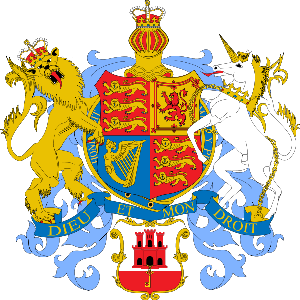"Mr Speaker, before I start, I should just confirm to the House that I have certified this Bill as urgent and as one that should be dealt with before the expiry of six weeks since its first publication."
"The reason for that is to ensure that our referendum law is amended in time for the coming referendum in June in a way that enables us to carry out that vote with the additional protections against the pandemic that we want to see.
I am grateful, Mr Speaker, in particular for the work of the Clerk of the House, in reviewing this legislation and proposing these changes to the Government.
Mr. Martinez has been instrumental in our preparation of this work and he has focused his approach on modernising the framework of our law and bringing into line procedures for voting in parliamentary elections with those with votes in referenda.
Additionally, Mr Speaker, the Clerk has also liaised with members across the floor on the reasoning behind his proposed changes to the legislation.
Mr Speaker, the work required to achieve the publication of this Bill is therefore a testament to both Mr Martinez’s experience and his ability.
It is also, Mr Speaker, a testament to how highly regarded he is by members on both sides of the House, given that the is able to engage with all on the detail of a legislative proposal as he has.
Mr Speaker, as the explanatory memorandum sets out, the purpose of this Bill is two fold.
Firstly, it removes from the Act all provisions regulating the procedure for the registration of voters, enabling voters to vote in person or by post or by proxy, establishing the various forms to be used by persons and generally for all practical matters relating to the organisation, administration and conduct of referendums.
Additionally, it gives the Chief Minister specifically the responsibilities of the Minister, under the act and, with that responsibility, the power to make regulations governing all such matters and thirdly providing for extended postal and proxy voting.
Clause 2 of the Bill establishes that the Act will commence on the date of publication. This is more important in this instance than it is in most Bills.
For the reasons I have referred to before as to the abridgement of time for this Bill, we want to ensure it is in effect and commenced before I have to sign the Referendum notice, which can be no less than 40 days before the referendum due on the 24th June.
Clause 3 contains the meat of the amendments to the Parliament Act with the following new provisos:
• Section 2 of the Act is amended by introducing a new set of definitions to reflect the amendments to the Act;
These include the definition of the Chief Minister as the Minister with responsibility for referenda and the other relevant definitions such as the definition of voter, register etc.
• Section 8(2) is amended by the inclusion of references to regulations thus ensuring legal standing to regulations made under the Act;
• Section 9(1) is amended to make reference to Referendum (Voting) Regulations 2021 which will be made under this Act;
• Parts 4, 5, 6, 6A, 7 & 8 are deleted as these parts have been amended and transposed into the new regulations;
• A new section 10(1) is inserted to provide for the suspension of any regulations made pursuant to section 83 of the Act in the event of an emergency as defined by section 10 of the Civil Contingencies Act 2007 being declared by the Minister by Notice in the Gazette;
We now know that these eventualities are not just theoretical. Honourable Members will recall that we agreed to suspend the referendum on the Crimes Act which we will now hold next June just one week before it was due to be held last year.
• A new Part 4 sets out the format for the report that the Referendum Administrator has to send to the Minister on the organisation, conduct and results of the referendum. The original report was amended because the information it required the Referendum Administrator to give, apparently breached data protection laws;
• Section 61(1) that deals with how secrecy is to be observed is amended by the insertion of references to subsidiary legislation;
• Section 62 creates an offence if there is a contravention of the regulations;
• Section 65 provides for the application of the offence of bribery to regulations created under the Act;
• Section 66 is amended to cover subsidiary legislation;
• New Section 70 (A) is inserted to create an offence if someone provides false information in connection with an application made for the purposes of this Act or any subsidiary legislation made pursuant to section 83 of this Act;
• Sections 72 and 73 are amended to cover subsidiary legislation;
• Section 77 is amended to allow for the provisions of this section to be applicable to regulations
• Section 78 is amended to reflect the new provisions of the Act and regulations and defines places of abode;
• Section 79 is amended to provide for subsidiary legislation made under section 83 of the Act;
• Section 81, is amended to cover subsidiary legislation;
• Sections 83 sets out regulation making powers and prescribes that any new regulations shall be laid upon the table in Parliament; finally,
• The Schedule is amended by the deletion of now irrelevant forms under the Act."
